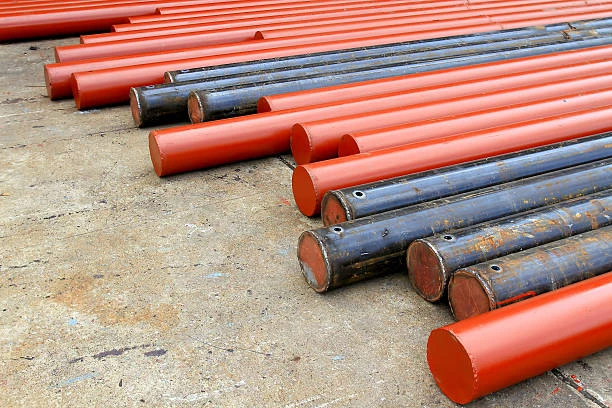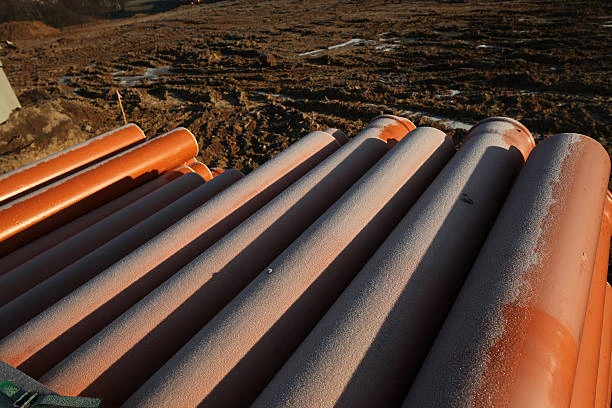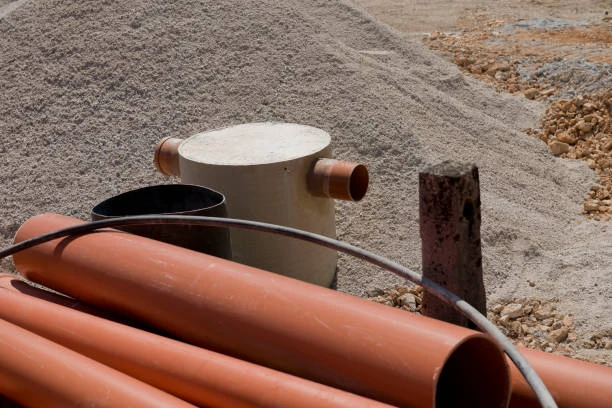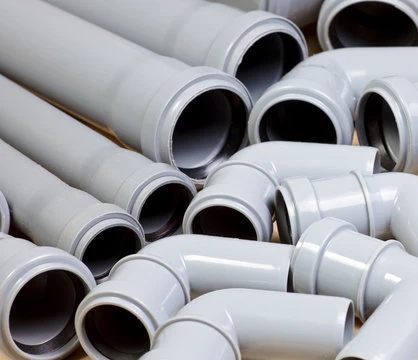Introduction
PPH pipes (Polypropylene Homopolymer) has gained widespread use in modern pipeline projects due to its outstanding chemical resistance, durability, and ease of installation. As industries seek reliable and long-lasting piping solutions, PPH continues to be a preferred material for chemical processing, water treatment, and various industrial applications.
The growing demand for efficient pipeline systems has led to a surge in PPH adoption. Compared to traditional materials like metal or PVC, PPH offers better performance in aggressive environments. Its lightweight structure and ability to withstand high temperatures make it ideal for fluid transport.
This article explores why remains a top choice for pipeline projects, its key advantages, applications, and future trends in the industry.
Why PPH is the Preferred Choice for Pipeline Projects
PPH provides several benefits that make it superior to conventional piping materials. Industries that require corrosion resistance, high durability, and cost efficiency prefer PPH over other options.
1. Superior Chemical Resistance
PPH withstands exposure to acids, bases, and solvents, making it ideal for transporting aggressive chemicals. Unlike metal pipes, which corrode over time, PPH maintains its integrity even in extreme conditions. This feature extends the service life of piping systems and reduces maintenance costs.
2. High Temperature Tolerance
PPH handles higher temperatures than standard polypropylene. It remains stable in environments with elevated temperatures, making it suitable for hot fluid transport. Industries dealing with chemical reactions and thermal processing rely on PPH for safe and efficient operations.
3. Lightweight and Easy to Install
PPH is significantly lighter than metal or other thermoplastic pipes. This characteristic simplifies transportation and installation, reducing labor costs. Large-scale pipeline projects benefit from the ease of handling and quick assembly of PPH systems.
4. Long Service Life and Durability
PPH pipes have a long lifespan due to their resistance to environmental factors. Their non-corrosive nature ensures that pipelines function efficiently for decades with minimal maintenance. This makes PPH a cost-effective solution for infrastructure development.
5. Environmentally Friendly Material
PPH is 100% recyclable, making it an eco-friendly choice for pipeline projects. Industries focused on sustainability prefer PPH due to its minimal environmental impact. Unlike metal pipes, which require resource-intensive manufacturing, production has a lower carbon footprint.
Applications
PPH is widely used across multiple industries due to its outstanding properties. The following sectors rely on PPH piping systems for efficient fluid transport:
1. Chemical Processing Industry
Chemical plants use pipes for handling aggressive substances like acids, alkalis, and solvents. Their corrosion resistance ensures that pipelines remain intact, reducing the risk of leaks and contamination.
2. Water Treatment Facilities
PPH is commonly used in water treatment plants due to its resistance to chlorine, disinfectants, and corrosive chemicals. These pipes play a crucial role in desalination plants, wastewater treatment, and industrial water supply systems.
3. Food and Beverage Industry
PPH complies with hygiene and safety standards, making it a preferred choice for food processing plants. It ensures that liquids remain uncontaminated during transportation. Its smooth surface prevents bacterial growth, maintaining food safety standards.
4. Pharmaceutical and Medical Sector
In pharmaceutical manufacturing, PPH pipes transport purified water, chemicals, and solutions used in drug production. Their non-reactive properties prevent contamination and ensure compliance with strict industry regulations.
5. Mining and Metallurgical Applications
It is used for transporting chemical solutions in mining operations and metal processing plants. Its ability to withstand harsh environments makes it suitable for handling aggressive mining slurries and leachates.
6. HVAC and Industrial Cooling Systems
It is resistant to high temperatures and pressure fluctuations, making it ideal for HVAC systems. It efficiently transports hot and chilled water, ensuring smooth operation in industrial cooling applications.

Key Advantages of PPH in Pipeline Construction
1. Cost-Effective Solution
It provides long-term cost savings due to its durability and low maintenance requirements. Unlike metal pipes, which require regular upkeep, PPH systems remain operational for years without significant repairs.
2. Resistance to Corrosion and Scaling
It does not corrode or scale like metal pipes. This property ensures consistent fluid flow and prevents blockages in pipeline systems. Industries benefit from reduced downtime and improved operational efficiency.
3. Smooth Interior Surface
It pipes have a low friction coefficient, reducing pressure losses and improving fluid transport efficiency. This feature minimizes energy consumption, making PPH an energy-efficient choice for pipeline systems.
4. Impact Resistance and Strength
PPH pipes exhibit high mechanical strength and impact resistance. They can withstand external pressure, making them suitable for underground and industrial applications. Their robustness ensures reliability in demanding environments.
5. Customizable for Different Applications
It pipes are available in various sizes, thicknesses, and configurations, making them adaptable to different project requirements. Industries can choose customized solutions based on specific operational needs.
Future Trends in PPH Pipeline Projects
1. Expansion in Water Infrastructure Projects
With growing concerns over water scarcity and treatment, it pipes are gaining traction in municipal water supply projects. Their resistance to contaminants and long lifespan make them ideal for expanding water distribution networks.
2. Advancements in PPH Manufacturing
Technological innovations are enhancing the performance of them. Improved extrusion techniques and welding methods result in stronger, more durable piping systems. The future will see increased efficiency in PPH pipeline production.
3. Sustainability and Green Initiatives
Governments and industries are prioritizing eco-friendly materials. PPH, being recyclable and energy-efficient, aligns with sustainability goals. The demand for PPH pipes will rise as industries shift toward greener infrastructure solutions.
4. Integration in Smart Pipeline Systems
The rise of IoT and smart technology is influencing pipeline monitoring. PPH pipes, combined with sensor technology, can help industries track fluid flow, detect leaks, and optimize performance in real time.
Conclusion
PPH continues to be a game-changer in pipeline projects worldwide. Its superior chemical resistance, durability, and ease of installation make it a preferred choice across industries. From chemical processing plants to water treatment facilities, PPH delivers unmatched performance.
As the demand for high-quality piping solutions increases, remains at the forefront of pipeline innovation. Its long service life, eco-friendly properties, and cost efficiency ensure that pipeline projects keep flowing toward PPH.
FAQs
1. What are the main advantages of PPH pipes?
PPH pipes offer chemical resistance, durability, lightweight construction, and ease of installation. They are also cost-effective and environmentally friendly.
2. Can PPH pipes handle high temperatures?
Yes, they can withstand elevated temperatures, making them suitable for hot fluid transport in industrial applications.
3. How long do PPH pipes last?
PPH pipes have a service life of 50 years or more, depending on operating conditions and maintenance practices.
4. Are PPH pipes suitable for potable water applications?
Yes, PPH pipes meet hygiene standards and are safe for potable water distribution in residential and commercial settings.
5. How does PPH compare to PVC for pipeline projects?
PPH has superior chemical and heat resistance compared to PVC. It is preferred for demanding industrial applications where durability and performance are critical.


















